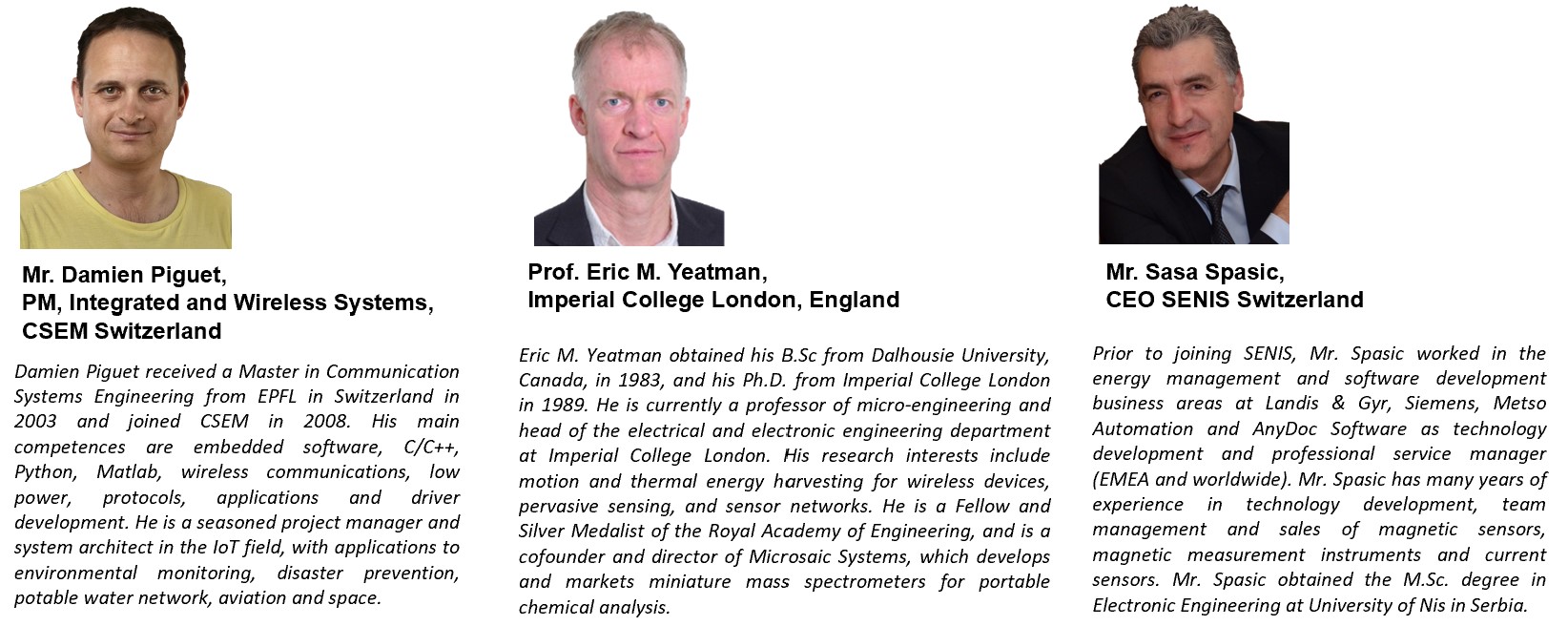Keynote 1: Academia meets Industry - and boosts Innovation and Entrepreneurship
In search of breakthrough innovation and to develop highly competitive products companies increasingly collaborate with academic research. While the companies get fresh ideas and access to state of the art knowledge, the academic partners learn about industrial trends and needs. Industrial-academic collaborations therefore significantly contribute to build, sustain and often transform entire industrial ecosystems. In this presentation I will show how our company SENIS was able to strongly grow by combining the considerable academic competence of its founders with extensive industrial collaborations. It will be discussed how fresh concepts led to a paradigm shift in Hall based magnetic sensors, laying the ground for the world class performance of our magnetic field and electric current measurement devices. As SENIS is constantly trying to move the limits of the feasible in magnetometry and sensor technology the demand for our products is continuously growing, giving proof of a successful academic-industrial collaboration.

Keynote 2: The AMPWISE project
The AMPWISE was funded by the European Union Cleansky 2 program. In aviation, fuselages of recent aircrafts are more and more made of composite material which is a poor electrical conductor, meaning it can no longer be used to carry the return current of the aircraft electrical systems. The structure that form an aircraft's skeleton, which is still conductive was identified as an alternative capable of carrying current. However, it was not designed to carry currents thus their effects are not well-known. The AMPWISE consortium developed a new wireless sensing solution capable of measuring current flowing through beam’s rails, which in addition would not add extra weight or add to the complexity of aircraft wiring. The sensor nodes’ communication system consumes less than 25 mA in average. The accuracy of the miniaturized Hall-effect electrical current sensor is 1% and the system is self-powered by the current it actually measured thanks to an inductive energy harvester which generates 0.4 mW from a 25 A RMS 360 Hz current flowing in the aircraft structure.”
Keynote 3: Nano-scale traceable magnetic field measurements
Macroscopic magnetic field measurements are well traceable to primary quantum standards based on nuclear magnetic resonance and various calibration chains to industry are established. In contrast, for magnetic field measurements on micrometer length scales and below quantitative measurements are more complex, since the spatially varying field distribution is averaged over the non-negligible volume of the field probe. The European metrology project Nanomag has addressed this problem and has established routes for traceability of highly spatially resolved magnetic field measurements. The project addressed three complementary measurement techniques, namely scanning Hall magnetometry, magneto optical indicator film magnetometry and quantitative magnetic force microscopy (qMFM). One key outcome of the project was the first validation of qMFM with 50 nm spatial resolution by an international round robin comparison and the development and publication of the first international standard for nanomagnetic field measurements published by IEC TC 113 - Nanotechnologies for electrotechnical products and systems. This work was funded in the EMPIR programme (Project 15SIB06) co-financed by the Participating States and from the European Union’s Horizon 2020 research and innovation programme.

Keynote 4: Contactless electric current sensors
Current sensors are required for applications such as smart grids, smart buildings, power conversion, and electric drives. With increasing prices of electricity, electric power consumption monitoring is required in multiple points, sometimes even for individual appliances. Many current sensors will be soon required for electromobility, both onboard vehicles and inside the charging stations. These sensors should cover large dynamic range, exhibit small errors and be resistant to the influence of large external currents in the close vicinity. There is also a pressure for low price, small size and light weight. Currents to be measured often contain large DC component and also high-frequency component. Gapped magnetic core with Hall sensor is the classical solution: we will discuss peculiarities of this design and possibilities of replacing Hall sensor with short SDT magnetoresistor. Magnetic yoke without gap is used in current transformers and for the measurement of DC current fluxgate principle is used. However, for many applications these sensors are too heavy and large to be competitive to modern galvanically isolated shunt modules. This is why yokeless current sensors become more important. We will discuss various designs and their properties. We will also mention the effect of eddy currents in the busbar on the frequency dependence of the yokeless current sensor and how it can be compensated.

Keynote 5: EMF Monitoring: from the general public requirements to the industrial needs
The electromagnetic field (EMF) has become an integral part of modern technological development, following any application with electric power use. The majority of today’s EMFs are artificially, man-made produced, in wide range of frequencies, triggering health concerns on EMF exposure and requiring appropriate investigation. The objective is to highlight any potential adverse health effects, as well as beneficial ones, along with technical characterization in specific case-use. In this Keynote Speech, the technology of EMF monitoring will be analyzed from perspective of the general public requirements to the industrial needs, focusing on the overview of state-of-the-art monitoring concept, measurement equipment and their technical applications. Several details for one of the major wireless networks for EMF monitoring – the Serbian EMF RATEL system, will be presented, underlining its use as valuable public tool for dissemination of daily present EMF in the environment. On the other side, industrial applications will be overviewed, among them those inspired by electromobility.


